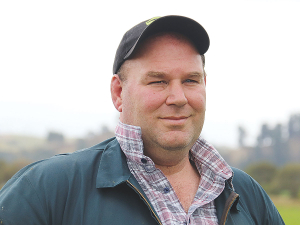The focus is on three packages: infrastructure and development, the primary sector and freshwater - and there's widespread support across the sector for these moves.
The changes, which are out for consultation for the next two months, will see many of the rules that have irked farmers and growers removed or severely modified to give them certainty, clarity and provide a commonsense pathway for managing the environment.
According to the Minister for RMA reform, Chris Bishop, the planning system is broken and is a handbrake on the economic growth and the cause of many challenges across the economy.
"The RMA as it stands embeds a culture of 'no', and as a country we have to say yes more, and reforming the RMA is a key part of this puzzle," he says.
The proposals would include seeing changes to the National Policy Statemene for Freshwater, with regional councils given greater flexibility to balance environmental goals with economic impacts and allow longer timeframes to reach targets where needed, but within national guidelines. The changes would also see the removal of unnecessary consents for practices such as crop rotation and enable commercial domestic vegetable growing, and support long-term water security by enabling water storage.
Agriculture Minister Todd McClay describes the changes as a key step toward, restoring balance in how freshwater is managed across the country and ensuring the interests of all water users, including farmers, growers and rural communities, are properly reflected.
"We're putting outcomes ahead of process and backing rural New Zealand to be part of the solution. Farmers aren't asking for a free pass, they are asking for a fair go," he says.
Clearly in the cross hairs of the Government is the existing concept of Te Mana o Te Wai (the health and wellbeing of water) which places the need for pristine water overriding economic and other considerations.
The proposed changes would see the pre-eminence of Te Mana o Te Wai reduced and there is even a hint that it could be scrapped altogether. Such a change would mean, among other things, the removal of stock exclusion regulation for sheep, beef and deer.
The Associate Minister for the Environment Andrew Hoggard says the current system's Te Mana o Te Wai has caused frustration across rural New Zealand, with some councils applying it in a way that sidelines the very people working to improve water outcomes.
"We won't stand by while councils weaponise Te Mana o Te Wai, to push ideology over common sense. It must reflect the importance of freshwater to all New Zealanders," he says.
Hoggard says the old system was a one size fits all approach, which doesn't work. He says the system needs to be flexible and deal sensibly with local conditions. But at the same time, the new national standards being proposed will put something of a handbrake on councils both - district and regional.
"Councils will not be able to run around and say you need to have consent for anything and everything because they will have to abide by the national standards and their role will just be to monitor what farmers do," he says.
Hoggard says the changes will provide more certainty and confidence for farmers and also give banks confidence that they can loan for a decent time and allow farmers to make those investments.
"That will be of huge benefit," he says.
Current Rules 'Unworkable'
DairyNZ says they welcome the chance to shape a hugely important policy for farmers and will be seeking farmers' views to inform their feedback to the Government in the next two months.
In a statement, DairyNZ chair Tracy Brown and chief executive Campbell Parker say the current rules are impractical and unworkable, and welcome the commitment towards a more balanced and inclusive approach. They say the rules should be focused on delivering on outcomes, not just input controls, and aimed at specific ecosystem and human health outcomes, not just numerical targets, to best deliver on catchment objectives.
"Catchment groups have demonstrated success in delivering on-the-ground environmental improvements and sharing the actions farmers can take, and we support them. We're working with scientists from dairy companies and regional councils to ensure we reduce complexity and unrealistic compliance burdens," they say.
Brown and Parker says they believe in science-based regulation which is practical and enduring and delivers on outcomes.
They say farmers need certainty about the rules and clear, measurable outcomes.
Federated Farmers says it applauds the proposed changes and says the previous government's freshwater rules were completely unworkable for farmers and that the changes herald steps towards a more sensible national direction to local authorities.
Feds spokesperson Colin Hurst says they particularly welcome the news that government wants a more balanced approach to Te Mana o Te Wai.
"That concept, as pursued by the previous government, has been unworkable and highly problematic. It was unclear how councils should interpret and apply what was a vague concept of protecting the mana and mauri of water under Labour's rules, and what that might mean for our farms and rural communities," he says.
Hurst says under Te Mana o Te Wai, the health and wellbeing of water is put ahead of all other considerations, including human health, and social, cultural and economic wellbeing.
"That seems wildly imbalanced. The Government's announcements recognise such a strict hierarchy is flawed," he says.


















